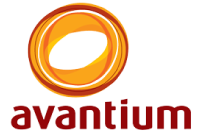Pyrolysis Oil Upgrading
Upgrade pyrolysis oil from recycled plastics or biomass
In the transition to a more sustainable world, refiners are challenged with a feedstock pool of ever increasing complexity. Pyrolysis oil derived from plastic waste or biomass is a typical example of such a new feedstock. This liquid is used to replace fossil-based feedstock in the production of variety of chemicals. Before pyrolysis oil can be used, it needs upgrading to remove impurities like e.g. oxygen, sulfur and nitrogen. These pyrolysis oils are very diverse in properties, meaning extensive testing is needed.
Chemical recycling helps to reduce landfill and the leakage of plastics into the environment and is a renewable carbon feedstock for the chemical industry, replacing fossil feedstock, hence reducing CO2 emission.
Pyrolysis is the most common used technique to crack waste polymer molecules and produce a liquid fraction called Pyrolysis Oil or PyOil.


PyOil typically contains a number of elements that poisons downstream catalysts or causes plugging or corrosion.
Reducing these contaminants below acceptable limits, called PyOil upgrading, can be divided into the following steps:
- Stabilization
- Removing contaminants via adsorption
- Removing contaminants via catalytic hydro treatment
- Boiling point adjustment
Developing or selecting suitable adsorbents and catalysts, process optimization and quality control requires a lot of down scaled screening tests.
Avantium offers parallel test solutions addressing todays R&D needs with regards to PyOil upgrading.
Scoping: unit configuration

Our way of working

Why Choose Us?
» Decades of high throughput application experience
» Highest safety standards
» Custom made systems, tailored towards customer specifications
»Advanced system features:
-
- Tube in tube reactor system
- Easyload® reactor loading
- High pressure possible, even with quartz or ceramic reactors
- Reactant diluent, enhancing downstream processing and analysis
- Accurate process parameters: Large iso thermal zone and backpressure regulation
- Automated liquid sampling system
- Fully automated system, suitable for duration tests
- Integrated software and recipe management
For more information, please contact us.

